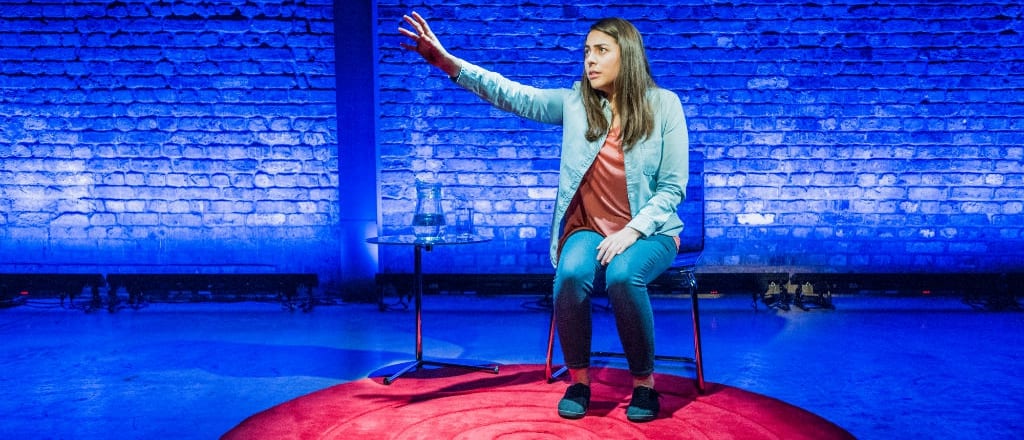It’s difficult to believe that in the 21st century babies can be, and are, switched at birth, let alone comprehend the practical and emotional implications of such an event. Hanna explores the complex and nuanced meaning of family and parenthood when an accidental mix-up in an overstretched maternity ward changes the lives of two sets of strangers forever.
Hanna, played by Sophie Khan Levy, had Ellie when she was eighteen years old, and cherishes both her beloved child and her role as a mother. When Ellie turns three, DNA tests reveal staggering news and Hanna must navigate and confront what being a parent really means. Sophie Khan Levy narrates with conviction and impressive fluidity given the isolated and heavy dialogue forming the entirety of the play. Her tale is consistently compelling and she provides the character with multiple dimensions – at times endearingly naïve, and others fiercely protective and determined. However, throughout the narrative there are slight inconsistencies with Hanna’s character, particularly in terms of the language she uses, which does let down the overall authenticity of the story.
Sam Potter’s writing is intelligent, vivid and sensitively handles a subject which is packed with complexity and acute emotion. She subtly weaves in questions of racial identity and economic privilege, ultimately addressing the universal notion of the lottery of birth. Although the play relies solely on Levy’s narration, Potter’s writing is vivid and evocative enough to keep the audience in the palm of Hanna’s hand, and the whole narrative has a good pace to it. However, after twists, turns and highly charged action, the ending does feel a little disappointing – it feels like there are multiple ways that this story could end, and the execution of the outcome doesn’t do the rest of the story justice.
Overall, Hanna is a fascinating piece of writing and a story packed with ancient philosophical questions set against the context of modern British society. Although Sophie Khan Levy is compelling to watch and conveys unquestionable talent as an actress, the impact of the narrative could perhaps be delivered via reading the text alone, and so elements of the theatre setting could have been drawn out more to create a richer and more immersive experience into the life and experiences of Hanna. Despite this, Sam Potter’s writing deserves to be heard, so a trip to Arcola is very much recommended.

